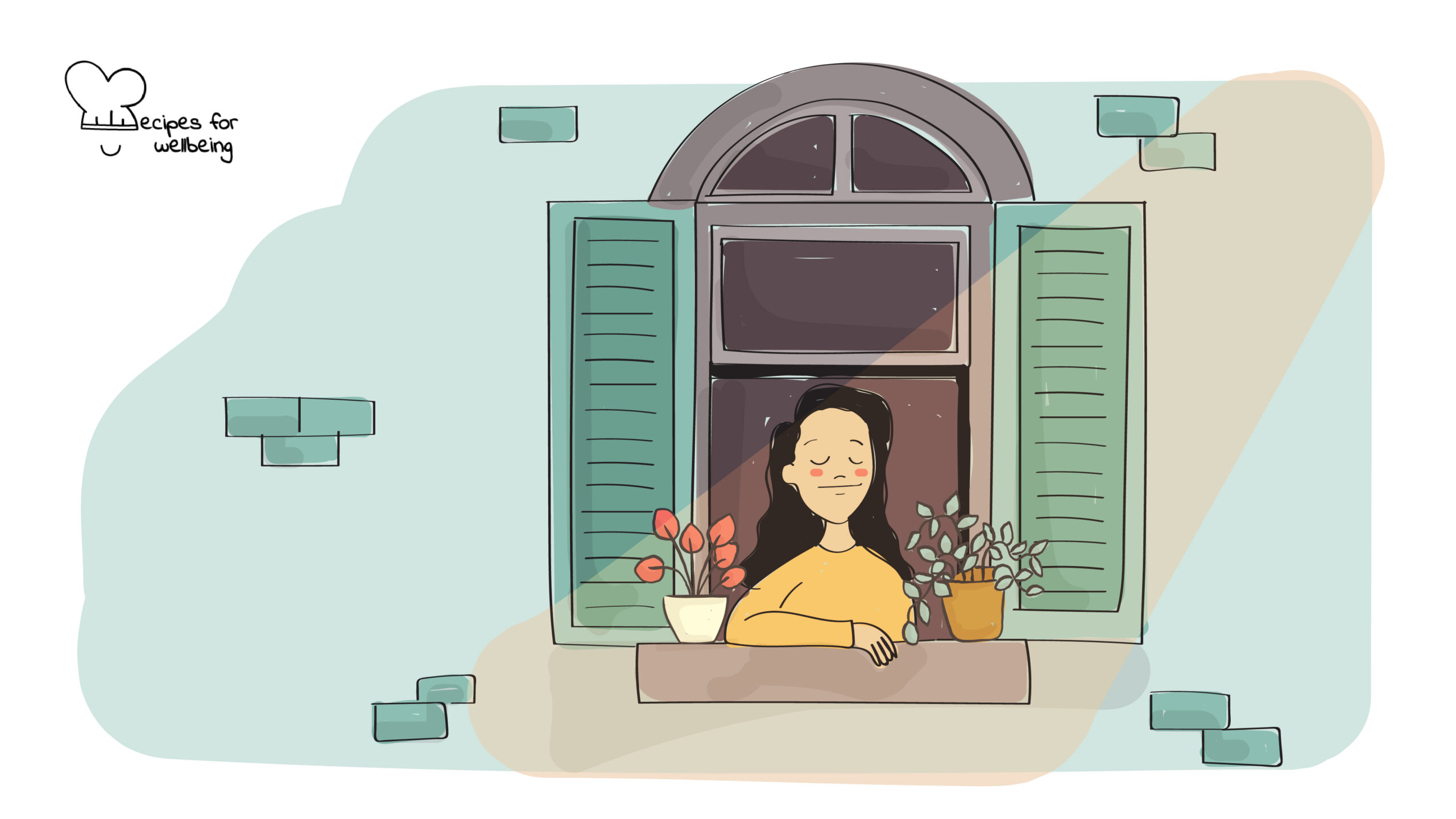
Morning intention setting
Our intention creates our reality. ―Wayne Dyer
 Serves: 1 person, 11-25 people, 2-10 people, 26-40 people, 41+ people
Serves: 1 person, 11-25 people, 2-10 people, 26-40 people, 41+ people
 Difficulty: Easy
Difficulty: Easy
 Total time: 1-10 minutes
Total time: 1-10 minutes
 Ingredients: “The Book of Joy – Lasting Happiness in a Changing World” book by His Holiness the Dalai Lama and Archbishop Desmond Tutu with Douglas Abrams (if you’re curious to find out more about it!)
Ingredients: “The Book of Joy – Lasting Happiness in a Changing World” book by His Holiness the Dalai Lama and Archbishop Desmond Tutu with Douglas Abrams (if you’re curious to find out more about it!)
 Wholebeing Domains: Accomplishments, Awareness, Liberatory Learning, Ritualising
Wholebeing Domains: Accomplishments, Awareness, Liberatory Learning, Ritualising
 Wholebeing Skills: Assertiveness, Centring, Clarity, Intention-setting, Intentionality, Perspective, Reflection, Self-awareness
Wholebeing Skills: Assertiveness, Centring, Clarity, Intention-setting, Intentionality, Perspective, Reflection, Self-awareness

Morning intention setting
 Description
Description
A practice to act consciously.
You wake up. You are in a good mood. You think it will be a good day. You feel it. Until you read that email in your inbox that turns everything upside down. That’s not what you needed to start your day with. Before you know it, your day has been affected for the worse. You are grumpy and feel betrayed by life and you pass on your stress to people around you, be they your colleagues, classmates, or family. To what extent can you relate with the situation above? How often did the tiniest of things overthrow the fragile positivity you had carefully created?
Many people let life happen to them, rather than being active co-creators with life. Setting goals at the beginning of your day is a helpful strategy to clarify your intention and not let life happen to you. His Holiness the Dalai Lama and Archbishop Desmond Tutu remind us, “Every conscious action begins with intention”. Quite simply, setting an intention is a way to prepare your mind and heart for how you wish to show up in the world and face whatever life has to offer. It can also be a useful strategy to check on your progress, especially when you have a big day ahead of you.
The following practice has been taken from The Book of Joy – Lasting Happiness in a Changing World by His Holiness the Dalai Lama and Archbishop Desmond Tutu with Douglas Abrams. In this book, two spiritual giants share their insights around a single burning question: how do we find joy in the face of life’s inevitable suffering? Their encounter is a powerful gift to humanity and it will help you understand the nature of true joy, the obstacles to joy, and most importantly the eight pillars of joy. The book also gathers over 20 invaluable joy practices.
•••
This recipe has been featured in our blog post “Wellbeing tools for a new decade” published on tbd* on 8 January 2020.
 Steps
Steps
Step 1 – Sit
Sit comfortably, either on a chair with the soles of your feet on the ground or cross-legged on the floor. You can also do this exercise while still lying in bed before getting up in the morning – after the alarm goes off and before the rush of the day has begun. You can rest your hands on your legs or on your belly.
Step 2 – Breathe
Close your eyes and take several long breaths through your nose. Feel your stomach rise and fall as you breathe from your diaphragm.
Step 3 – Ask
Now ask yourself: “What is my heart’s desire? What do I wish for myself, for my loved ones, and for the world?” Our deepest desires usually lie beyond our temporary wishes and wants. They are likely to involve living with profound human values that lead to our greatest happiness, calling us back to our place within the fabric of life. The Dalai Lama has a simple way of testing our intentions: “Is it just for me, or for others? For the benefit of the few, or for the many? For now, or for the future?” This litmus test can help guide us towards what we truly wish for.
Step 4 – State
Then state your intention for the day. For example: “Today may I greet everyone with the love that is in my heart.” Or “Today may I be less judgmental.” Or “Today may I be patient and loving with my children.” It can be specific or it can be general. If you do not know your intention, you can repeat the following four lines adapted from the traditional Tibetan prayer of the Four Immeasurables, which has guided many on their journey to more compassion and greater happiness:
“May all beings attain happiness.
May all beings be free from suffering.
May all beings never be separated from joy.
May all beings abide in equanimity.”


 Arabic
Arabic Chinese (Simplified)
Chinese (Simplified) Dutch
Dutch English
English French
French German
German Italian
Italian Portuguese
Portuguese Russian
Russian Spanish
Spanish